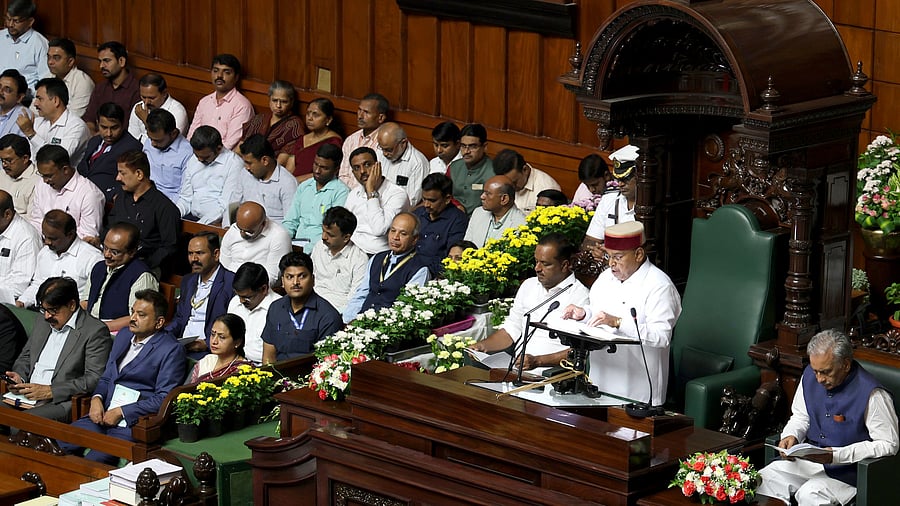
Image showing a sitting of the Karnataka Assembly.
Credit: DH Photo
Bengaluru: Multiple welfare legislations – the Karnataka Platform-Based Gig Workers (Social Security and Welfare) Bill, the Prohibition of Child Marriage (Karnataka Amendment) Bill, and the Karnataka Devadasi (Prevention, Prohibition, Relief and Rehabilitation) Bill – passed unanimously in the Council on Wednesday, with opposition parties voicing no reservations.
Piloting the Devadasi legislation, Woman and Child Development Minister Laxmi Hebbalkar expressed concern over the disturbing rise in the number of Devadasis in Karnataka over the years. While the number stood at around 22,000 in 2006-7, it had risen to 43,000, the minister said. “The numbers, however, are based on outdated data and the government has commissioned a fresh survey so we have accurate figures at hand. Heightened awareness may have prompted those who had hitherto not registered as Devadasis to do now,” Laxmi said.
However, the BJP voiced its reservations on the Karnataka Co-Operative Societies (Amendment) Bill, 2025. BJP’s Chief Whip in the Upper House N Ravikumar on Wednesday pointed out that, while the party strongly favoured reservation for members of SC/ST communities and women, it felt it should be done through proper electoral processes.
Piloting the bill, Law and Parliamentary Affairs Minister H K Patil said the government is introducing the legislation to ensure the appointment of members from SC/ST communities and women to the posts of chairpersons and vice-chairpersons of the societies.
He noted that the primary objective of the bill is to ensure that members from the SC/ST communities are appointed as chairpersons and vice-chairpersons in cooperative societies. "Despite their large membership—over 24 lakh SC and 14 lakh ST members—their representation in leadership roles remains negligible. The bill seeks to correct this imbalance and promote inclusive leadership within the cooperative sector," Patil added.
